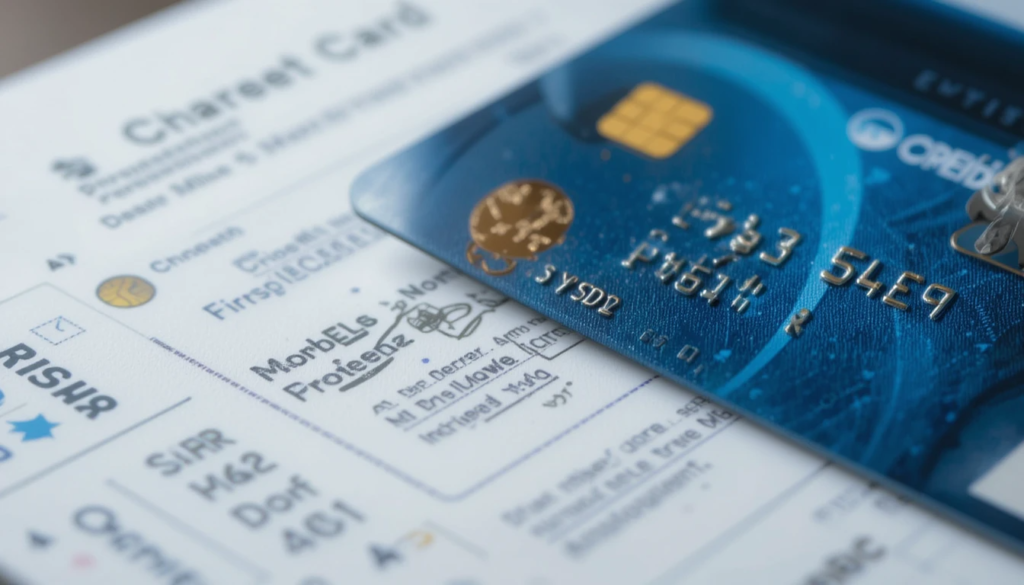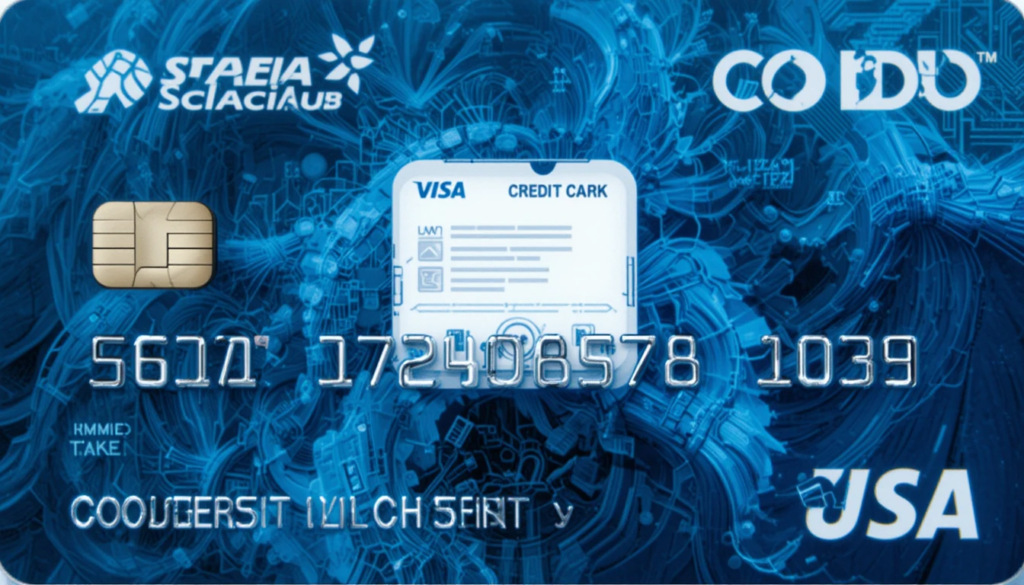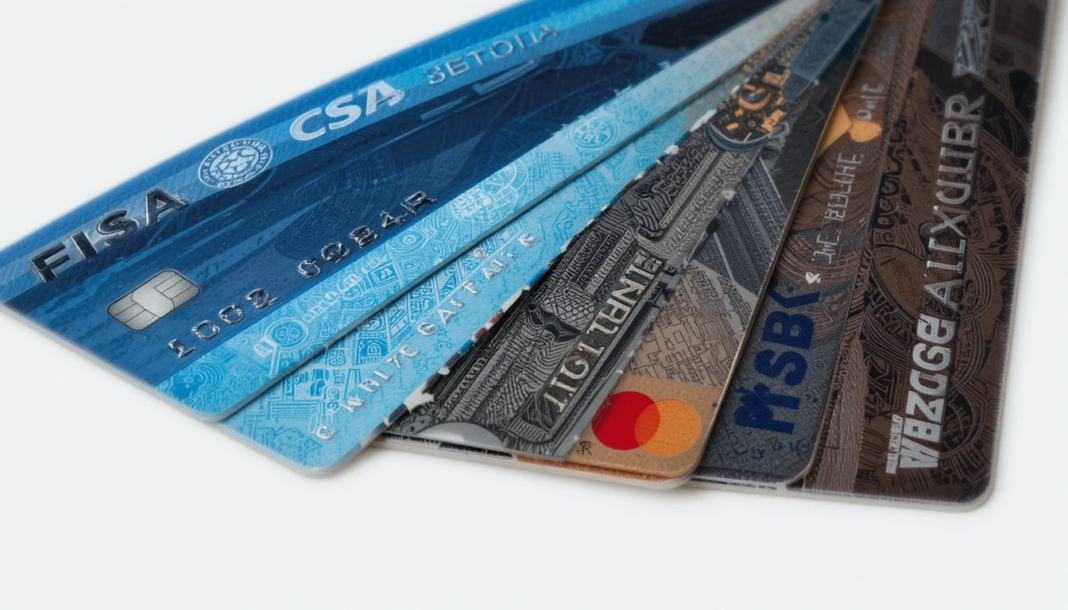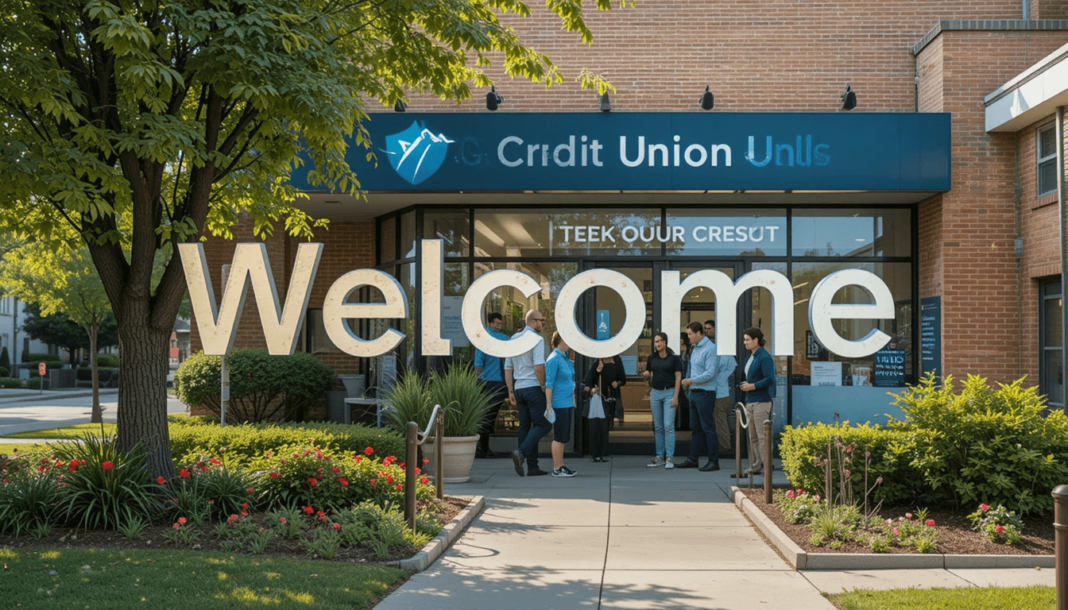You’re fresh out of college, or maybe you’ve just always used debit cards, or maybe you’re new to the country. Best Credit Cards Whatever your story, you’re a blank slate when it comes to credit. And in America, having “no credit” is almost as bad as having “bad credit.” It’s like trying to get a job without any references – no one knows if you’re reliable!
My friend, Liam, moved here from overseas a few years back. He had money, a job, everything! But he couldn’t even get a simple postpaid phone plan. He looked at me, totally lost, and said, “Dude, I seriously thought having money was enough! Why won’t they trust me with a phone?” It was maddening for him. And that’s the reality for beginners with no credit. You need credit to get credit. It’s a classic Catch-22, right? It’s like trying to get a job requiring 5 years experience, but you can’t get 5 years experience without a job. Drives you crazy!
But here’s the secret: there are ways to break into the credit game. You just need to know which cards are designed for folks like you, the credit newbies. This isn’t about getting a fancy travel card with all the perks right off the bat (we’ll save those for later, trust me). This is about getting any card that will help you build a positive credit history. So let’s dive into the Best Credit Cards for Beginners with No Credit.

What Even IS “No Credit”? (And Why It’s a Pain)
“No credit” means the credit bureaus (the big companies that track your financial behavior, like Equifax, Experian, and TransUnion) literally have nothing on you. No loans, no past credit cards, no public records of debt. Which sounds great, right? Like, “I’m debt-free!”
But lenders don’t see it that way. They see a question mark. They can’t assess your risk. Are you good at paying bills? Do you spend responsibly? No idea! So, they play it safe and say no. It’s unfair, I know! But that’s the game.
The goal with these beginner credit cards is simple: get something on your credit report, use it responsibly, and prove you’re trustworthy. It’s like getting a tiny foot in the door, just enough to show them you’re a good egg.
Key Types of Best Credit Cards for Beginners with No Credit
When you have no credit, you’re typically looking at a few specific types of cards. They might not be glamorous, but they are your stepping stones to financial freedom.
1. Secured Credit Cards: Your Best Friend for Building Credit
- What it is: This is probably the best option for most beginners. You put down a cash deposit (e.g., $200, $500), and that deposit becomes your credit limit. So if you put down $300, your credit limit is $300. It’s “secured” by your own money.
- Why it’s great: Because your money is collateral, the bank takes very little risk, making it much easier to get approved even with no credit history. As you use the card responsibly (paying your bill in full and on time!), the bank reports your activity to the credit bureaus. After 6-12 months, many secured cards will “graduate” you to an unsecured card and return your deposit.
- What to look for:
- Reporting to all three credit bureaus: This is crucial! Make sure they report to Experian, Equifax, and TransUnion.
- Low or no annual fee: Some charge a small annual fee, but many don’t. Aim for no fee if possible.
- Graduation policy: Does the card automatically review you for an upgrade to an unsecured card after a certain period? This is a huge plus.
- My take: This was literally my first card ever. My dad made me get one when I was 18. I hated putting down my own money, but it was the only way. And honestly? It worked! It built my credit so fast. It’s like training wheels for your finances. My friend, Maria, swore by her secured card when she was building credit after moving. “Dude, I seriously thought it was weird using my own money for a credit card, but it actually worked!” she said.
2. Student Best Credit Cards: If You’re Enrolled, You’re in Luck!
- What it is: These cards are specifically designed for college students, often with no credit history. They typically have lower credit limits, but they don’t require a security deposit.
- Why it’s great: No deposit needed! They often come with some basic rewards (like 1% cash back) and might even have small perks tailored for students (like good grades bonuses).
- What to look for:
- No annual fee.
- Reports to all three credit bureaus.
- Basic rewards: A little cash back is always nice.
- Good student bonus: Some offer a statement credit if you maintain a certain GPA.
- Who it’s good for: Obvious, right? College students (undergrad or grad). You might need proof of enrollment.
- My take: If I was starting over in college, this is where I’d go. It’s like the easiest cheat code for getting credit when you’re young.
3. Authorized User Status: Riding on Someone Else’s Good Credit
- What it is: Someone you trust (like a parent, spouse, or close family member) adds you as an authorized user on their existing credit card account. You get your own card with your name on it.
- Why it’s great: Their positive credit history (on that account) can show up on your credit report, giving you an instant boost. It’s often the fastest way to get some credit history.
- What to look for:
- Make sure the primary cardholder is responsible: They need to pay their bills on time and keep their credit utilization low. If they mess up, it affects you too!
- Confirm the issuer reports authorized user activity to credit bureaus: Most do, but some don’t. Ask.
- Who it’s good for: Young adults, spouses, or anyone whose family member has excellent credit and is willing to help them out.
- My take: My little brother did this with my parents. They put him on one of their oldest, best-maintained cards. His credit score shot up like a rocket! He looked at me, totally lost, and said, “Dude, I seriously thought I was going to have to wait years!” It’s like skipping to the front of the line, but only if you have a VIP escort.
4. Store Credit Cards: Proceed with Caution (But They Can Be an Option)
- What it is: Credit cards offered by specific retail stores (e.g., department stores, gas stations). They often have easier approval odds than general credit cards.
- Why it’s great: Easier to get approved for, sometimes with a tempting initial discount.
- What to look for:
- No annual fee: Many store cards do have annual fees, especially if they have a “premium” tier. Avoid these if you can.
- Reports to all three credit bureaus.
- High APRs: Be very careful. Store cards often have notoriously high interest rates. So, you absolutely, positively must pay your balance in full every month.
- Who it’s good for: Someone struggling to get approved for anything else, who absolutely commits to paying in full.
- My take: This was my first unsecured card. I got it for a 10% discount on a pair of shoes. I used it for small purchases and paid it off immediately. It worked, but I know people who got trapped by those high interest rates. It’s like a slippery slope – proceed with extreme caution.

How to Use Your Beginner Credit Card Like a Pro (Because That’s the Real Secret!)
Getting the card is just step one. Using it correctly is step two, three, and four. This is where you actually build that glorious credit history.
- Use it, but don’t abuse it. Make small purchases you can easily afford to pay off. Think subscriptions, a tank of gas, a small grocery run.
- Pay your bill IN FULL and ON TIME, every single month. This is the golden rule. It’s not optional. Set up auto-pay if you have to! Late payments are a disaster for your credit score. Interest eats rewards. Just don’t do it.
- Keep your credit utilization low. This means don’t max out your card! If your limit is $300, try to keep your balance under $30-$90 (10-30% of your limit). A $300 limit with a $290 balance looks bad, even if you pay it off. It’s like showing up to a party with a suitcase and trying to cram everything into a tiny backpack.
- Don’t open too many accounts at once. One or two cards is plenty for a beginner. Opening too many signals desperation to lenders and can temporarily ding your score.
- Monitor your credit. After a few months, check your credit report. You can get free copies from AnnualCreditReport.com. Make sure your payments are being reported correctly!
The Credit Score Journey: What to Expect
Building credit isn’t a sprint; it’s a marathon. You won’t go from “no credit” to “excellent credit” overnight.
- 6-12 months: You should start seeing a FICO score appear. It might be in the fair range (around 600s).
- 1-2 years: With consistent, responsible use, you can get into the good range (mid-to-high 600s, even 700s).
- 3-5+ years: If you keep it up, you’ll be well into the excellent range (high 700s, 800s).
It’s like growing a garden. You plant the seeds (get the card), water them consistently (pay on time), give them sun (keep utilization low), and eventually, you get a beautiful, flourishing garden (a great credit score!).
My Own Credit Journey: From Zero to… Pretty Good!
My first credit card was that secured card I mentioned. I used it for gas, sometimes a small grocery run. I’d pay it off the second I got paid. For real. Then, my parents added me as an authorized user. Then, after about a year, my bank upgraded my secured card to an unsecured one, and I felt like I’d won the lottery. My score started climbing. It wasn’t always perfect; I once accidentally missed a payment on a tiny bill because I forgot to update my autopay after getting a new bank account. That dinged me for a bit, and I looked at my bank statement, totally lost, and said, “Dude, I seriously thought I was doing everything right!” But I learned from it, and I bounced back.
That humble secured card opened doors. It helped me rent my first apartment on my own, get a good rate on my first car loan. And helped me eventually get those fancy travel cards with all the perks (which, trust me, are a blast). It truly unlocked adult life.

Conclusion: Your First Step to Financial Freedom!
So, there you have it, my friend, the lowdown on the Best Credit Cards for Beginners with No Credit. It might feel daunting, like you’re trying to climb a mountain without a rope. But with the right strategy and a bit of discipline, you can totally do this.
Don’t let “no credit” hold you back. Get a secured card, a student card, or find someone to add you as an authorized user. Use it wisely, pay your bills on time, and watch that credit score grow. Your future self, buying a house, getting a car loan with a great interest rate, or just being able to rent that dream apartment, will thank you for it. Cheers to building that credit and unlocking your financial future!





